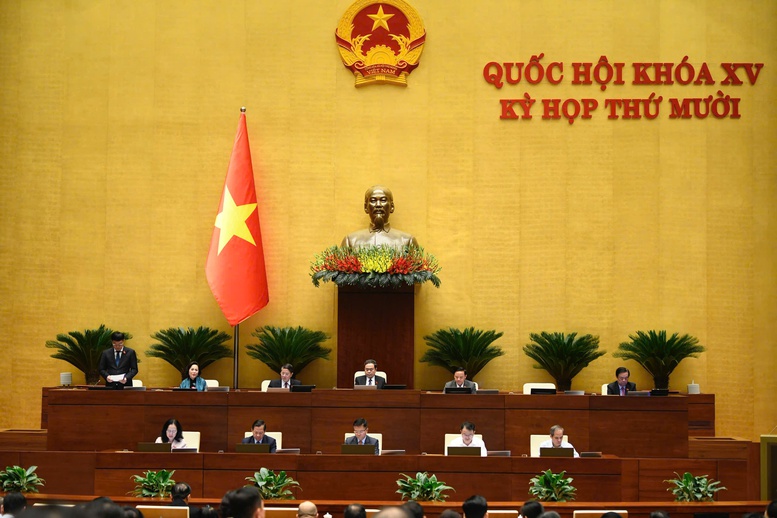
Discussion session on socio -economic content on October 29 - Photo: VGP
Legal regulations must be stable.
Some opinions of National Assembly deputies affirmed that, in recent times, the work of building and enforcing laws has been innovated in both thinking and working methods. The Government identified this as the top priority task, promptly institutionalizing the Party's policies and resolutions, especially quickly submitting to the National Assembly specific mechanisms and policies to implement the strategic resolutions of the Politburo and the Secretariat. These are very important policies to bring our country into a new era, an era of rapid and sustainable development.
With the largest volume of draft laws submitted to the National Assembly ever, especially the submission to the National Assembly to amend and supplement the 2013 Constitution at one session; the passing of many draft laws to implement the 2-level local government model; the innovative thinking in law-making, gradually removing many bottlenecks, creating a favorable environment for the country's socio-economic development.
Delegate To Van Tam (Quang Ngai) said that the construction and completion of institutions has received great attention. From 2021 to now, including draft laws and resolutions that the Government is submitting to the National Assembly at this session, there are about 166 documents that have been and will be considered and approved by the National Assembly. The Government, the Prime Minister, and ministries have issued 988 documents within their authority, making an important contribution to the country's socio-economic development.
What is noteworthy in the work of law-making is that legal thinking is recognized, not only to bind and prohibit but also to expand and encourage creativity. This is considered a resource for development, and also a point of change to shift thinking in national governance. The government not only manages but also creates and moves towards creating and serving.
In addition to the achievements, delegate Mai Van Hai (Thanh Hoa) said that the law-making work still has some shortcomings and limitations, such as some draft laws need to be amended and supplemented after a short time of promulgation, even having to be amended many times. The promulgation of some documents specifying the implementation of the law, removing bottlenecks in legal regulations, and the consolidation of some documents is still slow, causing difficulties in the application and enforcement of the law.
From the above limitations, delegate Mai Van Hai proposed to continue to effectively implement Resolution 66 of the Politburo on innovation in law making and enforcement, meeting the country's development requirements in the new era, the law making plan must be truly proactive right from the beginning of the term, from the beginning of the year.
Continue to innovate the thinking of law-making, only submitting to the National Assembly for regulation in the law issues of principle under the authority of the National Assembly. The provisions of the law must be stable. At the same time, it is necessary to accelerate digital transformation, apply artificial intelligence in law-making and enforcement, especially the application of artificial intelligence in checking, reviewing, and detecting contradictions and overlaps in laws and legal documents.
Perfecting the legal system is an urgent requirement.
Affirming that the improvement of legal institutions is an urgent requirement, delegate Nguyen Dai Thang (Hung Yen) suggested that the Government continue to review the entire system of legal and sub-legal documents, continue to review and thoroughly cut cumbersome procedures to create the most open and favorable administrative environment for people and businesses. Increase the predictability and stability of policies, publicize and make transparent socio-economic data, and at the same time, it is necessary to further improve institutions to protect officials who dare to think and act for the common good, combined with strict administrative discipline and order.
Referring to a number of specific mechanisms and policies, delegate Nguyen Duy Minh (Da Nang City) said that currently, the mechanisms and policies supporting the development of supporting industries are being regulated and dispersed in many different laws and decrees, not yet synchronized, and not strong enough to promote the development of supporting industries.
Resolution 68 of the Politburo requires priority policies to support access to capital, land, technology and markets for the development of supporting industries.
Therefore, delegates proposed that the Government pay attention to early institutionalizing the Party's policy, directing research and development of the Law on Development of Supporting Industries to form a unified and stable legal framework, ensuring production autonomy, sustainable integration and development of Vietnamese enterprises in the global value chain.
Regarding the development of the carbon market - an essential tool to achieve the goal of net zero emissions by 2050, delegate Nguyen Thi Viet Nga (Hai Phong City) said that the Government has identified in the report to proactively respond to climate change, promote green transformation, develop a circular economy, and reduce greenhouse gas emissions.
However, the reality shows that the construction of the domestic carbon market is still behind schedule and there are many challenges. We are in the preparation stage for the pilot operation of the carbon trading floor with more than 1,900 large emission facilities listed.
However, only 20% of them have complete emission inventory reports, the rest do not have the technical capacity or have not yet established a system to monitor, count and confirm actual emissions. This is the biggest bottleneck that prevents the carbon market from operating strongly and becoming an effective economic tool for emission reduction.
The delegate emphasized that a reality that needs to be recognized is that the concept of "carbon market" is still unfamiliar to people and businesses. Many businesses still do not clearly understand what carbon credits are, how carbon credits are bought and sold, and what benefits businesses get from reducing emissions.
Many people still consider climate change as a distant story and do not realize that it is closely related to their daily consumption behavior. When society does not understand and businesses do not care, even if there is a legal corridor, the market will only exist in form, lacking liquidity and motivation to develop. Therefore, developing the carbon market is not only an institutional issue but also a social awareness issue.
From there, delegate Nguyen Thi Viet Nga proposed that the Government direct a national communication program on correct understanding and correct action for the carbon market; combining basic knowledge on carbon credit emissions, green consumption in schools, television, digital platforms and business training courses. When people understand, businesses understand, and governments at all levels understand, the carbon market will truly operate effectively.
To develop the carbon market substantially, delegates said it is necessary to focus on perfecting the legal framework for the carbon market, clearly defining the mechanisms for transactions, auctions, monitoring, and handling violations. At the same time, it is necessary to build a system to monitor, count, and confirm actual emissions in a transparent, independent, national level, unified among ministries, sectors, and large-emission enterprises.
Regarding the content of the mechanism and policy for elderly care, delegate Tran Thi Thanh Huong (An Giang) said that the regulations related to elderly care are still scattered in many different documents and there is no specialized legal framework, no clear definition of nursing care models, mainly focusing on social support for the elderly poor, not focusing on developing modern, diverse, flexible models to meet the needs of society, and at the same time there is no specific financial support policy for the elderly to access services in the form of co-payment or insurance.
From the above viewpoint, the delegates believe that it is necessary to review and amend the Law on the Elderly to make it more suitable to the current situation. One of the urgent issues is the need to build a specialized legal framework. At the same time, it is necessary to promote the development and early promulgation of a plan for the care system for the elderly nationwide.
At the same time, there needs to be appropriate and proportionate mechanisms and policies to increase the attraction of social resources to invest in elderly care so that this care becomes an official profession, bringing practical socio-economic efficiency, in order to create an essential infrastructure in a civilized society.
Hai Lien
Source: https://baochinhphu.vn/can-tiep-tuc-doi-moi-tu-duy-xay-dung-phap-luat-102251029165130741.htm


![[Photo] Prime Minister Pham Minh Chinh chaired a meeting to discuss solutions to overcome the consequences of floods in the central provinces.](https://vphoto.vietnam.vn/thumb/1200x675/vietnam/resource/IMAGE/2025/10/29/1761716305524_dsc-7735-jpg.webp)
![[Photo] Hue: Inside the kitchen that donates thousands of meals a day to people in flooded areas](https://vphoto.vietnam.vn/thumb/1200x675/vietnam/resource/IMAGE/2025/10/29/1761738508516_bepcomhue-jpg.webp)

![[Photo] Flooding on the right side of the gate, entrance to Hue Citadel](https://vphoto.vietnam.vn/thumb/1200x675/vietnam/resource/IMAGE/2025/10/28/1761660788143_ndo_br_gen-h-z7165069467254-74c71c36d0cb396744b678cec80552f0-2-jpg.webp)

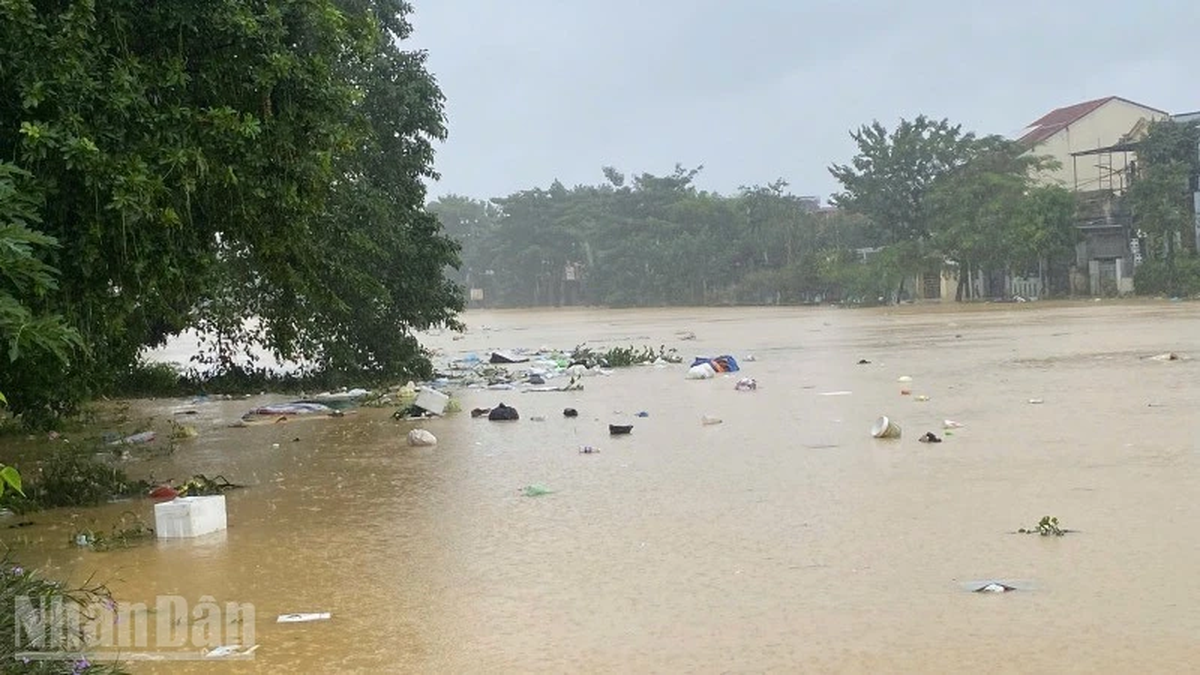
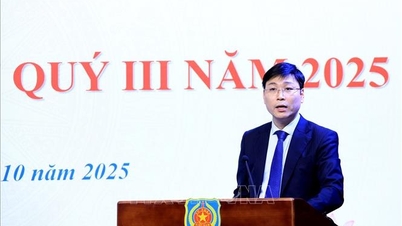

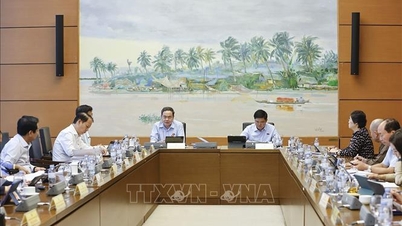
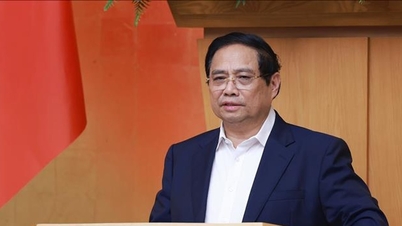

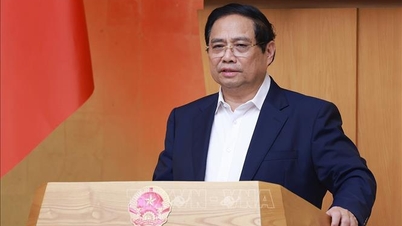




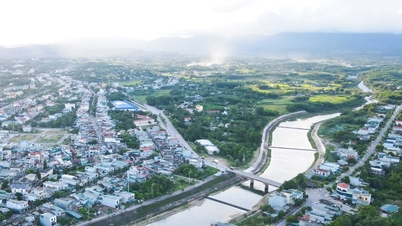
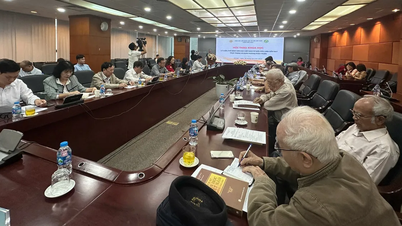

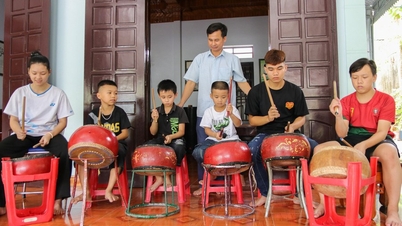

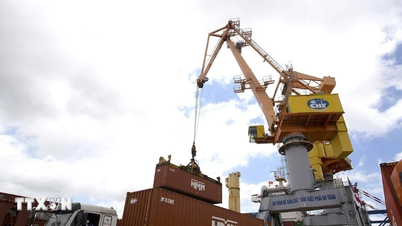
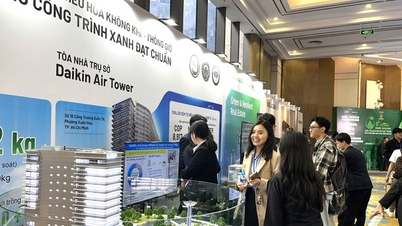
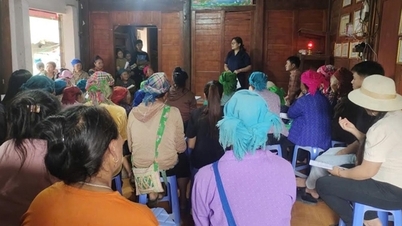









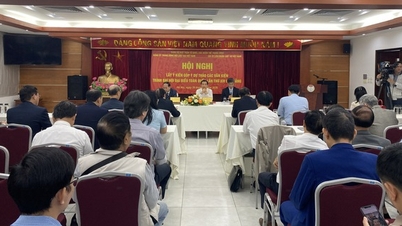
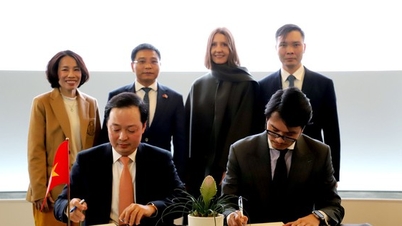




































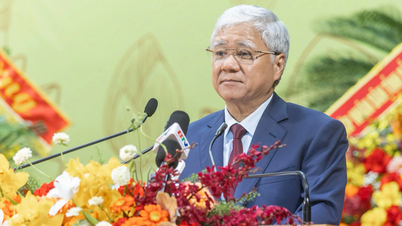
![[Infographic] Vietnam's socio-economic situation in 5 years 2021-2025: Impressive numbers](https://vphoto.vietnam.vn/thumb/402x226/vietnam/resource/IMAGE/2025/10/29/1761730747150_anh-man-hinh-2025-10-29-luc-16-38-55.png)


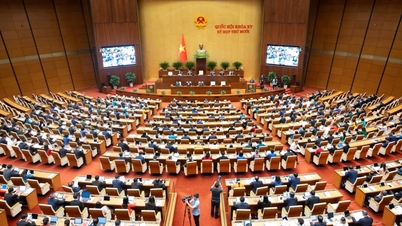
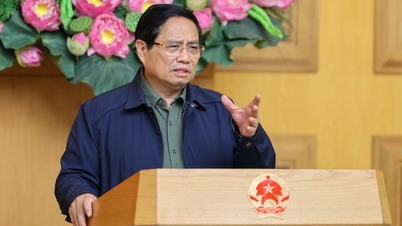
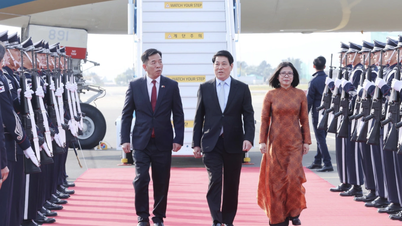
![[Live] Concert Ha Long 2025: "Heritage Spirit - Brightening the Future"](https://vphoto.vietnam.vn/thumb/402x226/vietnam/resource/IMAGE/2025/10/29/1761743605124_g-anh-sang-am-thanh-hoanh-trang-cua-chuong-trinh-mang-den-trai-nghiem-dang-nho-cho-du-khach-22450328-17617424836781829598445-93-0-733-1024-crop-1761742492749383512980.jpeg)




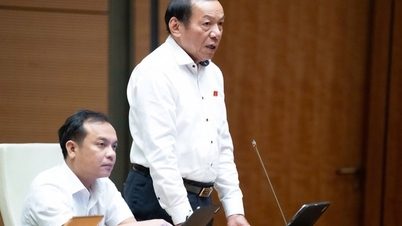
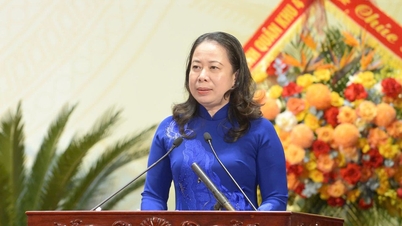

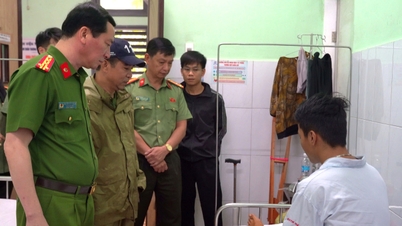



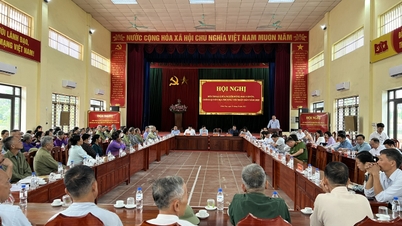

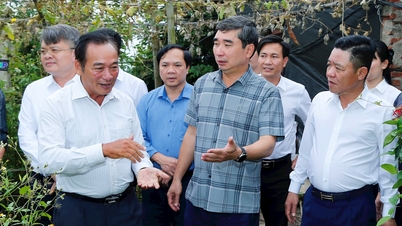

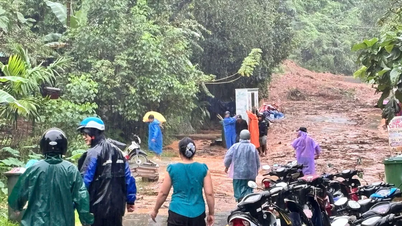
















Comment (0)